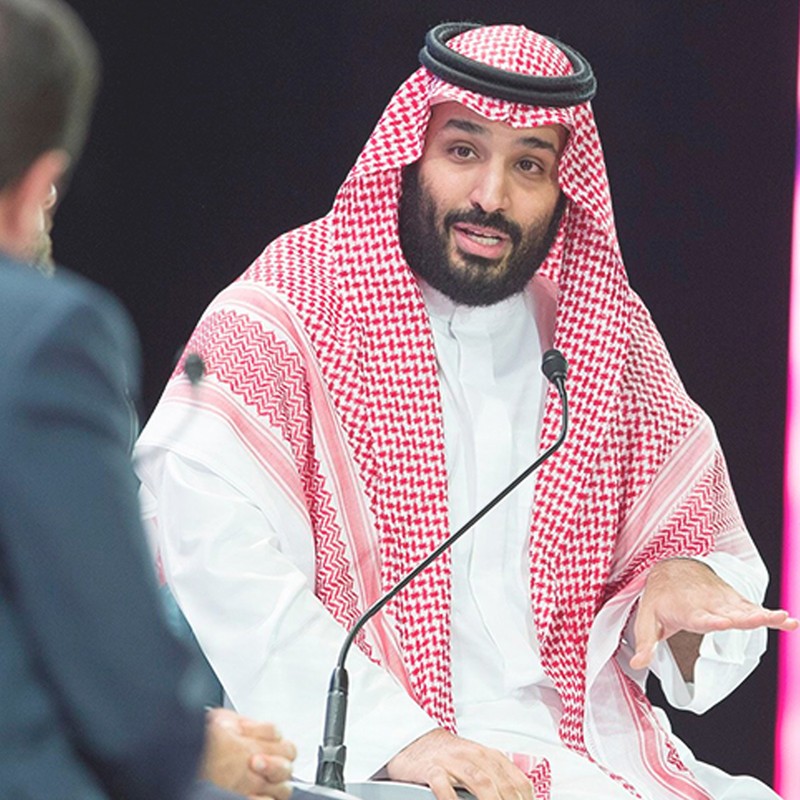“The worst cover-up in history”: What happened to Jamal Khashoggi?
What happened to Jamal Khashoggi?
Jamal Khashoggi was last seen entering Saudi Arabia’s consulate in Istanbul to collect documents for his upcoming marriage. Khashoggi fled his native Saudi Arabia last year – his outspoken views against the government marking him out as a regime target. There are tight restrictions on the media in Saudi Arabia – and the government does not take well to criticism. Two days after Khashoggi’s disappearance, concerns about his welfare were raised and the Saudi ambassador was summoned to the Turkish foreign ministry. Suspicion continued to grow about Saudi Arabia’s involvement and Turkish investigators began searching the consulate building. As Saudi authorities continued to deny knowledge of Khashoggi’s whereabouts, gruesome details were leaked about his apparent fate – including the contents of an alleged video said to show his torture and murder in the consulate.
What has Saudi Arabia said?
The Saudi reaction to Khashoggi’s disappearance raised suspicions from day one. Initially, the authorities vigorously denied any suggestion of wrongdoing, calling rumours of his murder “lies”. As pressure for an explanation grew, the Saudis’ story changed – the authorities then claiming Khashoggi was in fact killed during a ‘fist-fight’ in the consulate. A day after the ‘fist-fight’ claim, Saudi foreign minister Adel Al Jubeir claimed the journalist was in fact killed in a rogue operation gone wrong. The crown prince said neither he nor intelligence officials were aware of the operation – describing the incident as a “heinous crime” and pledging to find those responsible.
The international community remained unconvinced, all evidence seeming to point towards a planned killing. In one particularly outrageous twist, CCTV footage was leaked showing a Saudi agent dressed in Khashoggi’s clothes and sporting a fake beard. The poorly disguised body-double was deliberately caught on camera leaving the consulate, in an apparent plan to fool investigators into thinking the journalist had left the building alive. As hapless as it was, the body-double did provide evidence for one important theory: that the murder was deliberate and premeditated. The video seemed to confirm Turkey’s suspicions – and led Donald Trump to describe the Saudis’ efforts as “the worst cover up in history.” As of yesterday, Saudi authorities still seem to be getting their story straight; the country’s public prosecutor spinning a fresh story – claiming new information had led officials to agree the killing was indeed planned.
What has Turkey said?
As the Saudis scrambled to explain the disappearance, Turkish authorities continued their investigation; searching the consulate buildings and local woodlands for evidence. Rumours grew surrounding the alleged audio and video recordings of Khashoggi’s interrogation, torture and murder, said to be at the hands of Turkish investigators. While these recordings are yet to come to light, recent media reports say they have been seen by Gina Haspel, the director of the CIA. Turkey’s president Recep Tayyip Erdoğan seemed to confirm the existence of the recordings, saying investigators held evidence Khashoggi’s death was “savage” and planned. The president also called on the “highest ranked” involved to be held accountable – without naming names. Erdoğan made no mention of the crown prince’s involvement – unlike Donald Trump who earlier this week said of Bin Salman: "He's running things and so if anybody were going to be [involved], it would be him."
What are the international consequences?
While many countries have been quick to voice their outrage at the alleged killing, the international consequences are likely to be a mixed bag. Several countries have boycotted the Saudi Arabian investment conference being held this week, and in the UK, Theresa May revoked the visas of those suspected of murdering the journalist. However, relations between the West and Saudi Arabia are complex – largely down to the country’s massive economic power. Politicians in both the US and UK have been cautious to cut ties with the Saudis, pointing out the thousands of British and American jobs dependent on good diplomatic relations.
Nonetheless, Saudi Arabia’s apparent willingness to murder a journalist on foreign soil has caused some serious concerns worldwide. It follows the crown prince’s recent ‘reforms’ such as reopening the country’s cinemas and giving women the right to drive. If the crown prince did in fact order the killing, its likely to put a considerable dent in this attempt to paint him as a liberal ruler. Overall however, its likely diplomatic fallout will remain relatively minor as the world awaits the results of Turkey’s investigation. Regardless of what it uncovers, money talks – and Khashoggi’s death is unlikely to pose a challenge to the crown prince’s leadership. The takeaway? It looks like the world will remain a dangerous place for journalists willing to challenge powerful regimes.
DISCLAIMER: We endeavour to always credit the correct original source of every image we use. If you think a credit may be incorrect, please contact us at info@sheerluxe.com.


